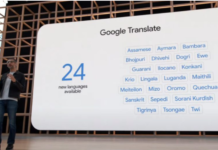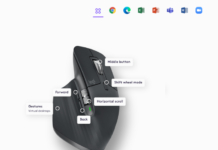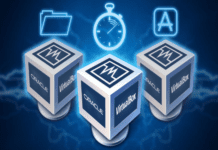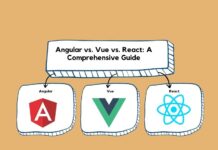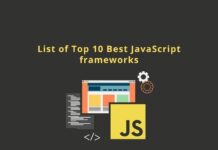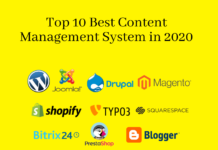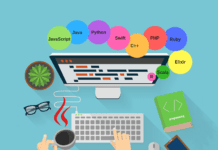The Top 5 Best Python Frameworks for Web Developers
Python is among one of the most popular and code-efficient languages available amongst developers. Python is a programming language that lets you work more quickly and integrate your systems more effectively. Python is a dynamic, object-oriented language. You can learn to use Python and see almost immediate gains in productivity and lower maintenance costs. It has myriad of features that are not available in any single language and it rather motivates programmers to write readable code. Python offers designers the ability to articulate their concepts through a few code lines compared to other languages of programming. In this article, we will introduce the top 5 best Python Frameworks for Web Developers.
1. Django
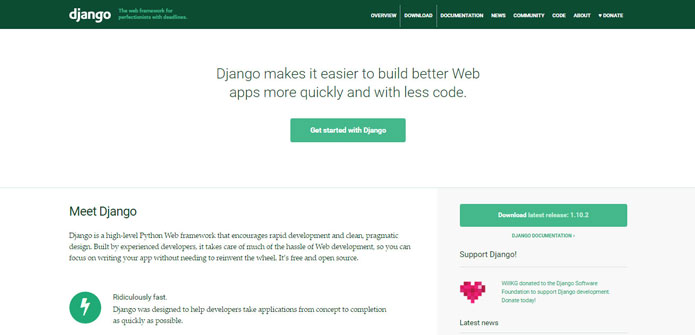
Django is a high-level Python Web framework that encourages rapid development and clean, pragmatic design. This open source and free web application platform is developed in Python that pursues model-view-controller pattern of architecture. Built by experienced developers, it takes care of much of the hassle of Web development, so you can focus on writing your app without needing to reinvent the wheel.
2. CherryPy
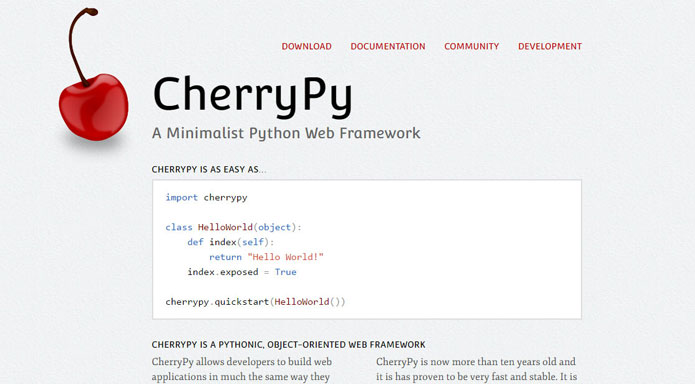
One of the most important reasons behind the origin of CherryPy is its compatibility with Python and its pythonic interface allows developers to integrate it just like any other module available in python.
CherryPy is developed to ensure quick web application development by wrapping HTTP protocol; however, it stays at low-level while not offering more than which is defined within RFC 2616
3. Flask
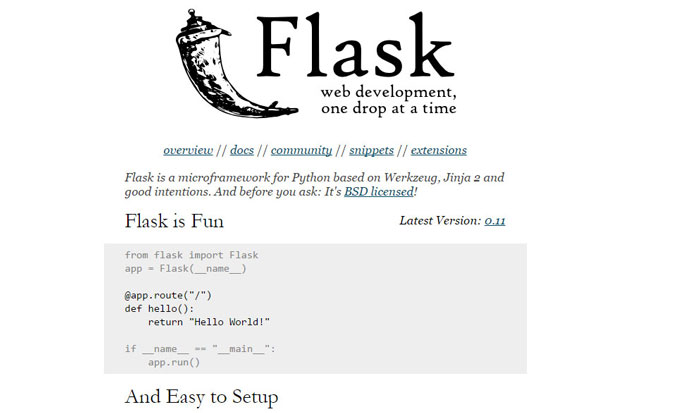
The Flask is best for developing basic and light weight applications. A new programmer might find it lacking several features such as form validation, database abstraction layer, and use of third-party libraries for adding common features. However, it allows extensions that make it comparatively easier to add the required functionality. It is based on the WerkzeugWSGI toolbox and Jinja2 template engine, using the BSD license.
4. Pyramid
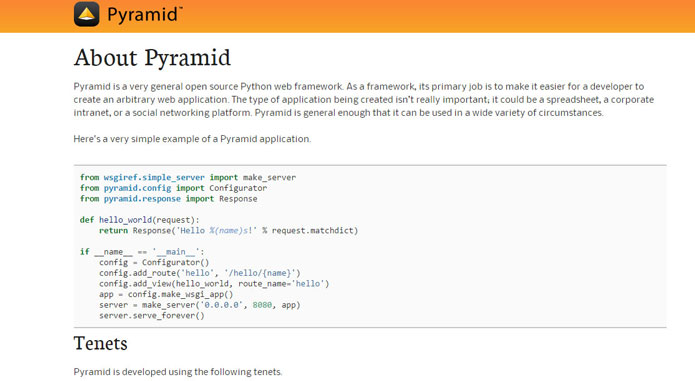
The Pyramid is known for its efficient and fast-paced development abilities. One of the best things about this framework is the inclusion of some of the most exclusive features available in Python, Perl, and Ruby. This open source web framework has platform independent MVC structure and a minimalistic approach to development.
5. TurboGears
TurboGears 2 is built on top of the experience of several next generation web frameworks including TurboGears 1 (of course), Django, and Rails. All of these frameworks had limitations that frustrated us, and TG2 was built as an answer to that frustration.
Good Luck! 








